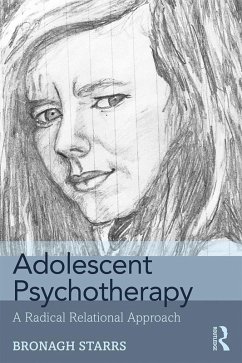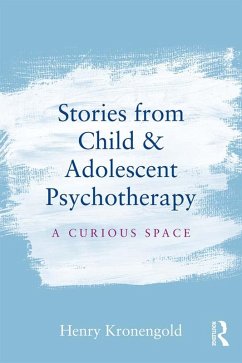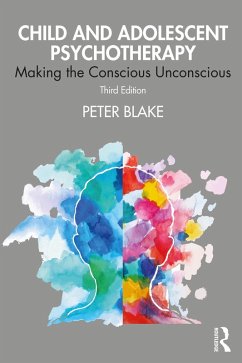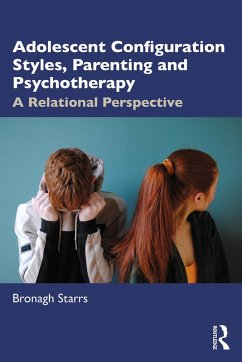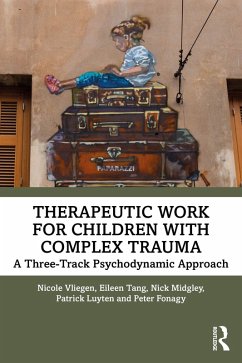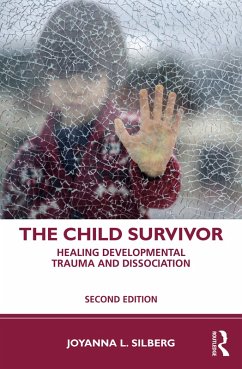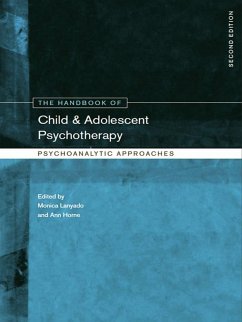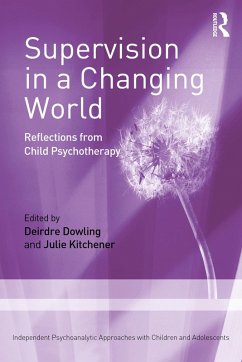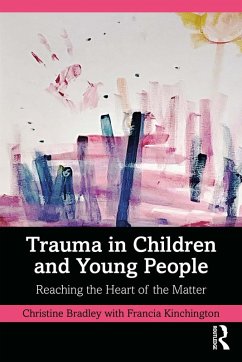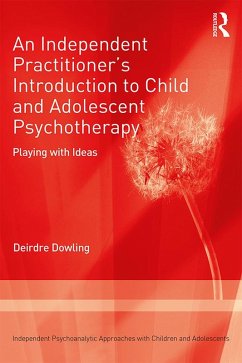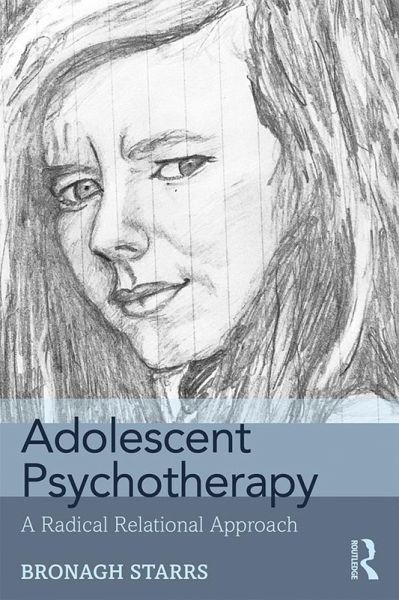
Adolescent Psychotherapy (eBook, PDF)
A Radical Relational Approach
Versandkostenfrei!
Sofort per Download lieferbar
29,95 €
inkl. MwSt.
Weitere Ausgaben:

PAYBACK Punkte
15 °P sammeln!
Counsellors and psychotherapists are faced with ever-increasing complexity in their work with adolescents. In this book, Bronagh Starrs offers an understanding of developmental and therapeutic process from a relational-phenomenological Gestalt perspective.Starrs shows how the adolescent's presenting symptom issues are statements of compromised lifespace integrity and demonstrates therapeutic sensibility to the adolescent's first-person experience. Throughout the book, the clinician is offered extensive relational and creative strategies to support integrity repair for the adolescent. The devel...
Counsellors and psychotherapists are faced with ever-increasing complexity in their work with adolescents. In this book, Bronagh Starrs offers an understanding of developmental and therapeutic process from a relational-phenomenological Gestalt perspective.
Starrs shows how the adolescent's presenting symptom issues are statements of compromised lifespace integrity and demonstrates therapeutic sensibility to the adolescent's first-person experience. Throughout the book, the clinician is offered extensive relational and creative strategies to support integrity repair for the adolescent. The developmental impact of various lifespace contexts are discussed, including parental separation, complex family configuration, grief, adoption, and emerging sexual orientation and gender experience. Therapeutic responses to common creative adjustments are explored including anxiety, school refusal, depression, self-harm, suicide, eating disorders, alcohol and drug use, and sexual trauma.
Adolescent Psychotherapy: A Radical Relational Approach will help counsellors and psychotherapists to develop deeper levels of competency in their work as adolescent psychotherapists, as they navigate the complex and fascinating experience of therapy with teenagers. This exceptional contribution is highly suitable for both experienced practitioners and students of counselling and psychotherapy.
Starrs shows how the adolescent's presenting symptom issues are statements of compromised lifespace integrity and demonstrates therapeutic sensibility to the adolescent's first-person experience. Throughout the book, the clinician is offered extensive relational and creative strategies to support integrity repair for the adolescent. The developmental impact of various lifespace contexts are discussed, including parental separation, complex family configuration, grief, adoption, and emerging sexual orientation and gender experience. Therapeutic responses to common creative adjustments are explored including anxiety, school refusal, depression, self-harm, suicide, eating disorders, alcohol and drug use, and sexual trauma.
Adolescent Psychotherapy: A Radical Relational Approach will help counsellors and psychotherapists to develop deeper levels of competency in their work as adolescent psychotherapists, as they navigate the complex and fascinating experience of therapy with teenagers. This exceptional contribution is highly suitable for both experienced practitioners and students of counselling and psychotherapy.
Dieser Download kann aus rechtlichen Gründen nur mit Rechnungsadresse in A, B, BG, CY, CZ, D, DK, EW, E, FIN, F, GR, HR, H, IRL, I, LT, L, LR, M, NL, PL, P, R, S, SLO, SK ausgeliefert werden.




